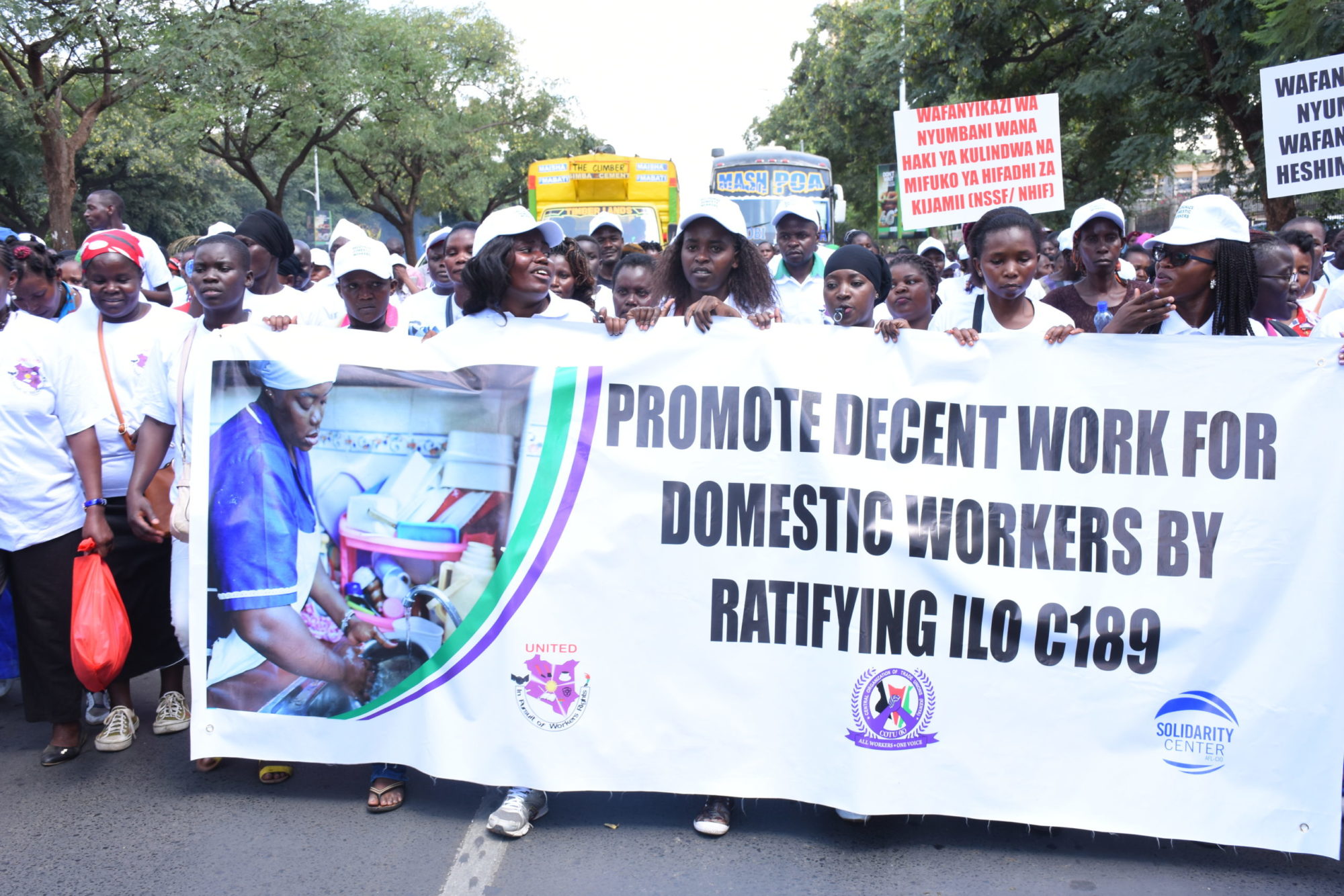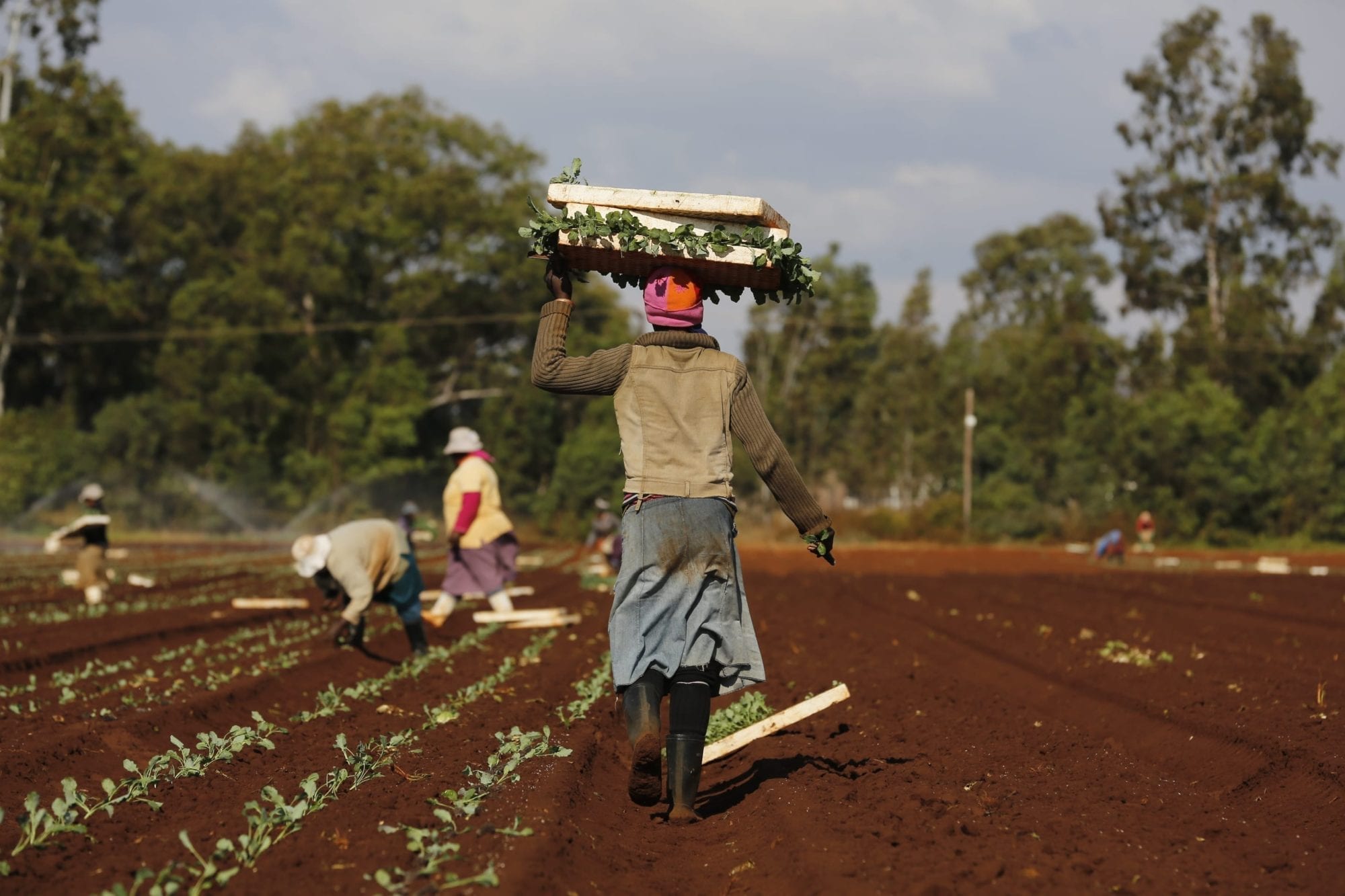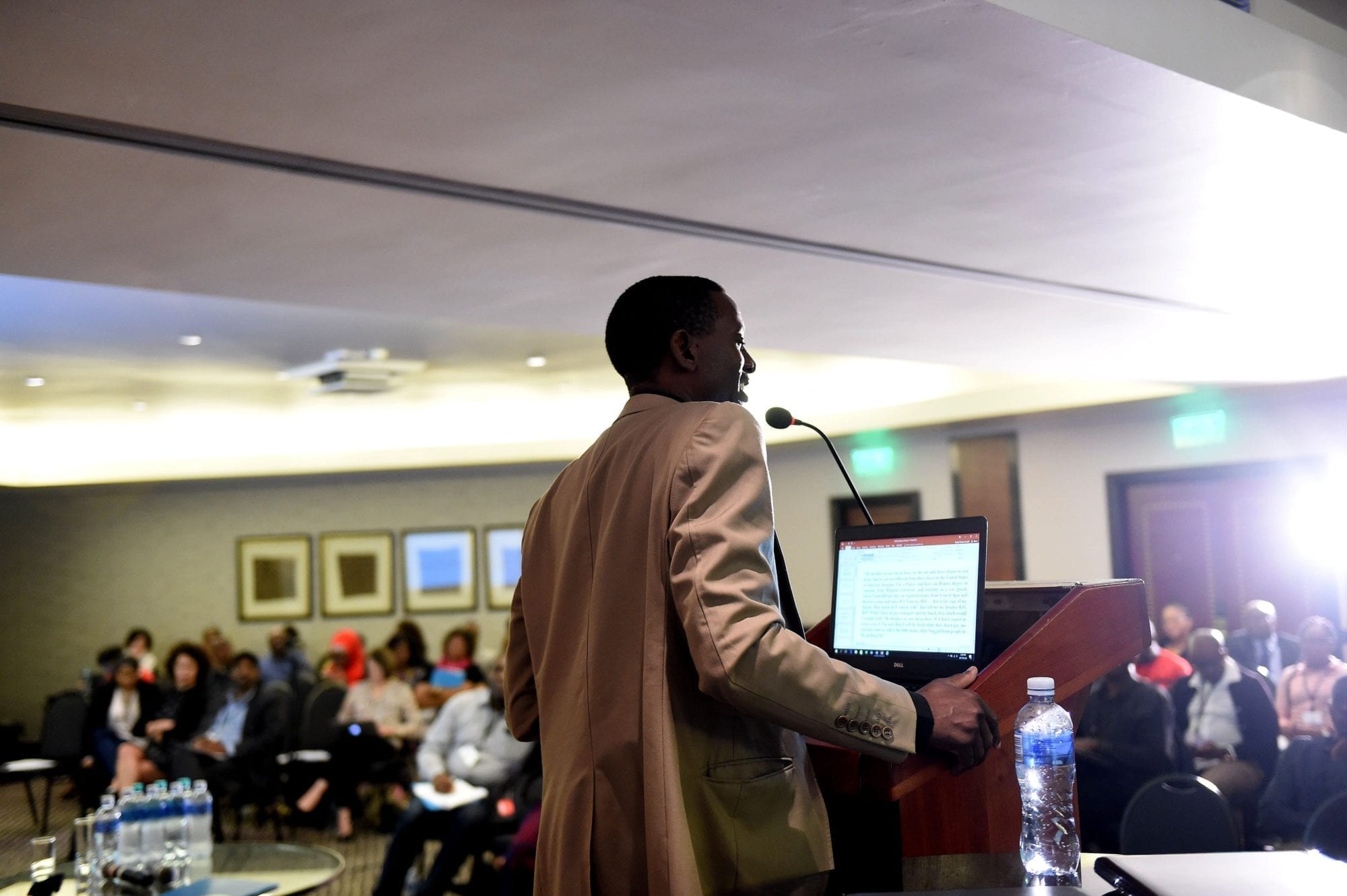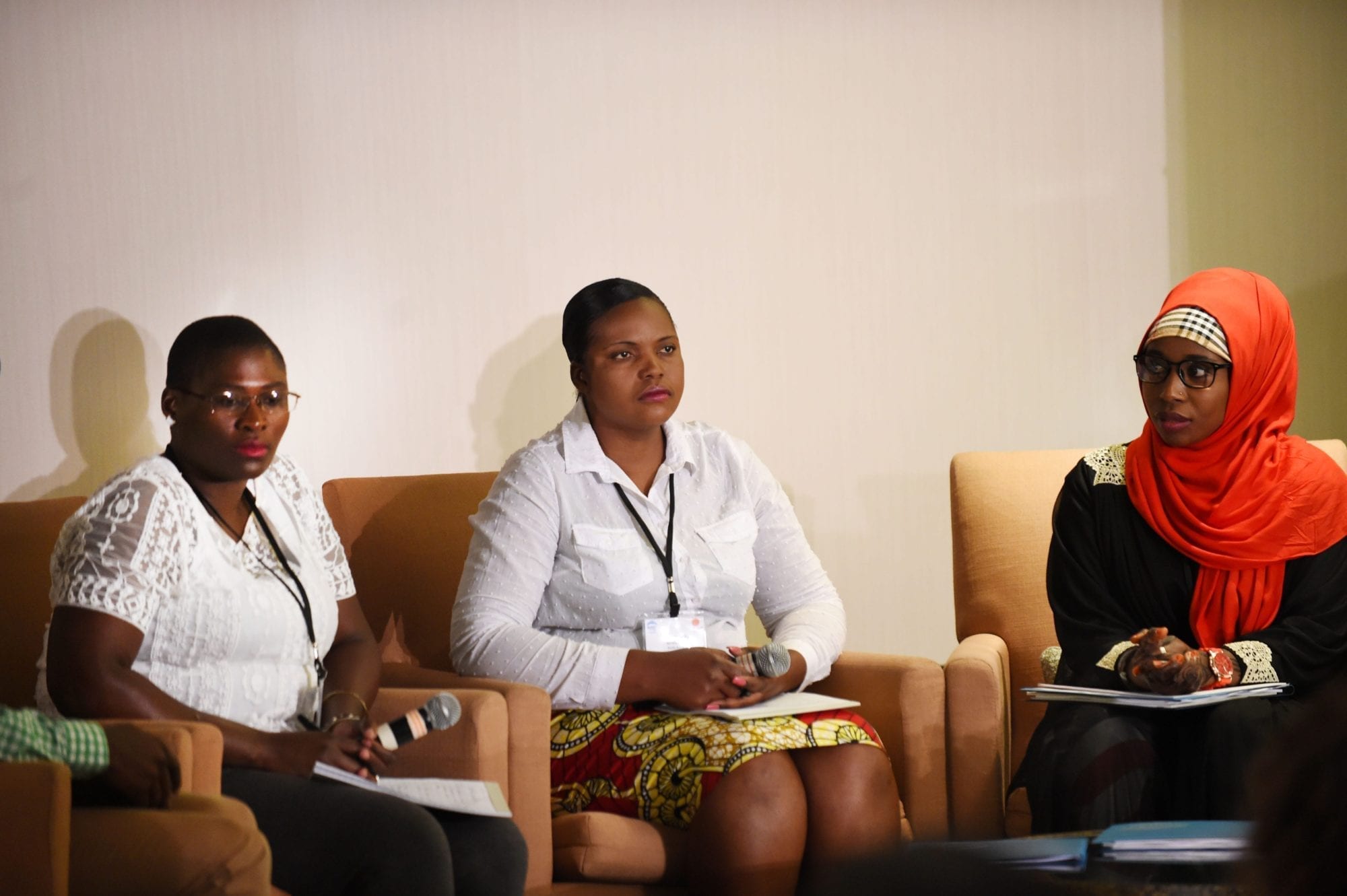If working people could find good jobs, they would not be forced into a desperate search for employment in other countries, a process that means they often are exploited and abused, says Caroline Khamati Mugalla, executive secretary of the East African Trade Union...

The Solidarity Center joins with unions in Kenya and around the world in championing ratification of the ILO global treaty Convention 189 covering domestic worker rights. Credit: KUDHEIHA
‘Growing Level of Intolerance against Labor Migrants’
Xenophobia and racism are embedded in the daily economic and social situation of labor migrants and refugees, according to Joseph Rudigi Rukema, a sociology professor at the University of KwaZulu-Natal. “The world is witnessing a growing level of intolerance against...
Migrant Workers in Africa: In Their Own Voices
Some 34 million Africans are migrants, and the majority are workers moving across borders to search for decent work—jobs that pay a living wage, offer safe working conditions and fair treatment. Yet even as they often leave their families in search of jobs that will...
No Results Found
The page you requested could not be found. Try refining your search, or use the navigation above to locate the post.



